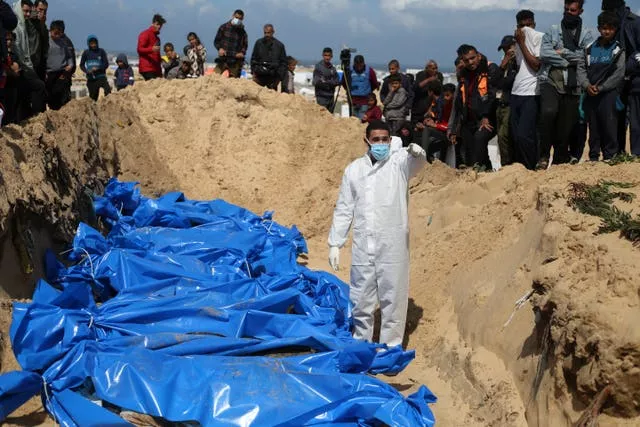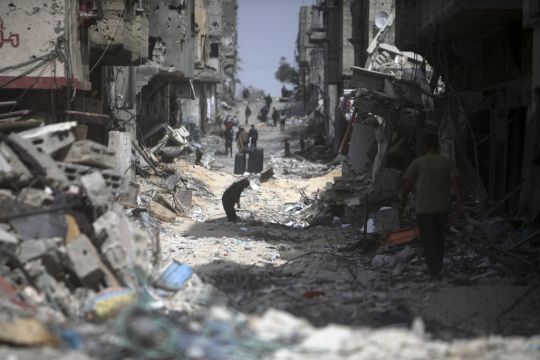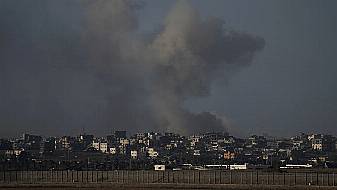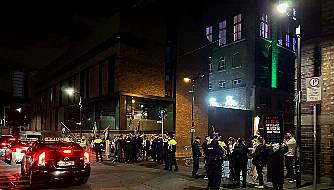Hamas has said that its delegation has left Cairo and that talks on a Gaza ceasefire and hostage release will resume next week, making it extremely unlikely that mediators will broker a deal before the Muslim holy month of Ramadan.
Mediators had looked to Ramadan as an informal deadline because the month of dawn-to-dusk fasting often sees Israeli-Palestinian violence linked to access to a major Jerusalem holy site. The war already has the wider region on edge, with Iran-backed groups trading fire with Israel and the United States.
Egyptian officials had earlier said the negotiations had reached an impasse over Hamas’ demand for a phased process culminating in an end to the war. But they did not rule out a deal before Ramadan, which is expected to begin on Sunday.

Hamas spokesman Jihad Taha said Israel “refuses to commit to and give guarantees regarding the ceasefire, the return of the displaced, and withdrawal from the areas of its incursion”. But he said the talks were still ongoing and would resume next week. There was no immediate comment from Israel.
The US, Egypt and Qatar have been trying for weeks to broker an agreement on a six-week ceasefire and the release of 40 hostages held in Gaza in exchange for Palestinians imprisoned in Israel.
The Egyptian officials said Hamas has agreed to the main terms of such an agreement as a first stage but wants commitments that it will lead to an eventual, more permanent ceasefire. They say Israel wants to confine the negotiations to the more limited agreement. Both officials said mediators are still pressing the two parties to soften their positions.
Hamas has said it will not release all of the remaining hostages without a full Israeli withdrawal from the territory.

Palestinian militants are believed to be holding around 100 hostages and the remains of 30 others captured during Hamas’ October 7th attack into Israel that triggered the war.
Hamas is also demanding the release of a large number of prisoners, including top militants serving life sentences, in exchange for the remaining hostages.
Hamas is believed to be holding the hostages deep inside its vast tunnel network, where rescue operations would be virtually impossible, and using them as human shields for its top leaders. It hopes to use them as bargaining chips to end the war on its terms.
This poses a major dilemma for Israel, which at some point may have to choose between its two main goals of bringing back the hostages and trying to annihilate Hamas.

Israeli prime minister Binyamin Netanyahu has publicly ruled out Hamas’ demands, saying Israel intends to resume the offensive after any ceasefire, expand it to the crowded southern city of Rafah and battle on until “total victory”.
He has said military pressure will help bring about the release of the hostages.
Ramadan is a time of heightened prayer, reflection and charity for Muslims the world over, who hold festive nightly gatherings with family and friends after fasting ends at sundown.
The lunar month is expected to begin Sunday or Monday, depending on the sighting of the moon.

In past years, Israeli forces and Palestinians have clashed in Jerusalem over access to the Al-Aqsa mosque compound, the third holiest site in Islam.
The hilltop on which it is built is the holiest site for Jewish people, who refer to it as the Temple Mount because it was the location of the Jewish temples in antiquity.
Hamas says it launched the October 7th attack partly in response to what it sees as Israel’s encroachment on the site and has called for heightened confrontations with Israel during the holy month. Israeli authorities say access to the site will remain unchanged from previous years.







